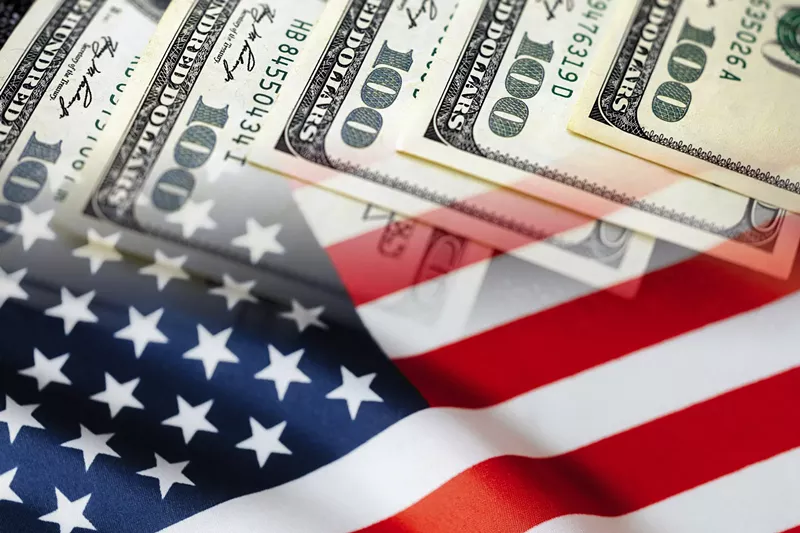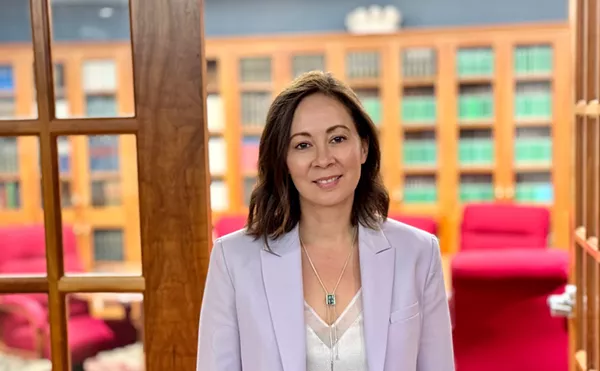As Donald Trump proudly boasts about tariffs and America’s economic independence, military operations abroad quietly shift to less visible engagements. Most Americans still haven’t seen a dime of what should be ours: the peace dividend. If the era of endless militaristic war and partisan power plays (bloc hegemony) is truly winding down, and the world is comfortably approaching balance through a trade “war” framework of influence, then where’s the money? Where’s the reinvestment in our schools, our streets, our health systems — or at least a viable plan for the future of our country?
The problem isn’t just who is in charge, it’s how we’ve normalized a government that profits from war but doesn’t pay out peace. We’ve spent decades watching taxpayer dollars flow into defense contractors’ pockets while hearing lectures about “fiscal responsibility.” Now, with the status of foreign engagements de-escalating, we’re given silence instead of savings. War, we are told, protects us. But what protects us from war’s leftovers: the debt, the trauma, the inflation and the bureaucracy that expands even as the bombs stop dropping? Let’s be honest: America’s post-9/11 generation deserves more than just a slow fade into economic stagnation and surveillance state creep. If we can afford war, we can afford a new economic model. One that redistributes the proceeds of peace back to the people.
Donald Trump positioned himself as the anti-establishment businessman. The guy who would "drain the swamp" while flipping the chessboard. It’s true, some of his economic policies, like tariffs, sound good as we await the ultimate impact. What American doesn’t want stronger domestic manufacturing and cheaper goods? However, a closer look shows familiar cracks: massive subsidies to the rich, erratic trade policy and tax cuts that ballooned the deficit while so far barely brushing working-class wallets. Is it really an anti-crony crusade, or just new cronyism under a different name?
Another question is: Can any candidate — left, right or somewhere undefined — actually flip a system designed to reward war, extraction and global instability as a means of influence? In a world so desensitized by media chaos and clickbait cruelty, “lovable” might seem like a weak word to try to describe any politician. A friend of mine is a huge AOC fan. Alexandria Ocasio-Cortez's popularity isn’t just a matter of personal style; it’s about ideological safety. People trust her not to start another war. People believe she’d be more likely to fight for student loan forgiveness or minority hardship than push another billion to Raytheon.
Elon Musk now finds himself in a parallel cultural lane. He is an unlikely candidate for political affection, but one who represents something rare: unpredictability that people still hope might break the mold. After his public breakup with Trump, which sent the President into a petty meltdown that nearly rattled global diplomacy in real time, Musk came out not unscathed, but strangely more relatable. Despite having once courted the right, Musk was always a darling of the techno-progressive left. He got burned by both sides, and now seems to be flirting with a new kind of politics altogether that taps into American restlessness, populist discontent and technocratic ambition. His rumored third party, if it manifests, may not align neatly with left or right, but reflects a growing hunger for ideologically unaffiliated leadership that doesn’t trigger existential dread.
It’s worth asking: What if the next generation of leadership didn’t make people afraid of losing rights, economic collapse or waking up to headlines about drone strikes, proxy wars or institutional betrayal? Lovability, in this context, isn’t softness, it’s stability. Close connection with our political leaders is a strange new currency in a time of exhausted partisanship and global reordering. The idea might just be what gets people showing up to the polls again even more excited to vote for change, which should always be represented year by year through modernity, cultural growth, and technological advancement anyway.
We need leaders who understand that CPI/PPI, GDP and per capita income are more than just acronyms to rattle off on CNBC or Fox News. We need policy-makers who ask the deeper questions: Why does GDP grow while wages stagnate? Why are consumer prices rising faster than anyone’s chance to rise with them? Why do legislative wins never seem to trickle down, only sideways into political careers, corporate welfare or cronies' pockets? Studying inequality metrics like the GINI coefficient taught me one thing: numbers can track disparity, but they rarely explain it. For that, you need human stories: of dislocation, of debt, of dreams postponed indefinitely. As someone coming from academia, it’s disorienting to realize that people still scoff when you try to connect decision-making, real-world experience and justice with individuals, leadership and change. But understanding how people think, how decisions are made under pressure, and how perceptions of opportunity and innovation are related is precisely how we make better political decisions.
There’s a popular quote in economics: “There’s no such thing as a free lunch.” But war has been serving the elite buffet-style for years. Now that things are cooling down, we deserve the check. It’s time to tie military drawdowns, cutbacks to public funding, eradication of “threats” to the domestic economy, and aggressive trade policy directly to individual tax and economic relief, as well as public investment. It's time to close the Pentagon’s blank checkbook and open local budgets for housing, education and small business innovation. A final shift from defense to dignity. Peace should pay, and not just defense contractors. The money is there. The public is ready. The wars are winding down. Now, where’s our cut?
Rodney Baker has been visiting Denver since 2015; he moved to Colorado officially in 2017, and worked for several ski areas. He is currently finishing college in Denver.
On weekends, westword.com publishes commentaries on matters of interest to the Denver community; the opinions are those of the authors, not Westword. Have a piece you'd like to share? Email [email protected], where you can also comment on this essay.

Audio By Carbonatix
[
{
"name": "GPT - Billboard - Slot Inline - Content - Labeled - No Desktop",
"component": "23668565",
"insertPoint": "2",
"requiredCountToDisplay": "2"
},{
"name": "STN Player - Float - Mobile Only ",
"component": "23853568",
"insertPoint": "2",
"requiredCountToDisplay": "2"
},{
"name": "Editor Picks",
"component": "17242653",
"insertPoint": "4",
"requiredCountToDisplay": "1"
},{
"name": "Inline Links",
"component": "18838239",
"insertPoint": "8th",
"startingPoint": 8,
"requiredCountToDisplay": "7",
"maxInsertions": 25
},{
"name": "GPT - 2x Rectangles Desktop, Tower on Mobile - Labeled",
"component": "24956856",
"insertPoint": "8th",
"startingPoint": 8,
"requiredCountToDisplay": "7",
"maxInsertions": 25
},{
"name": "Inline Links",
"component": "18838239",
"insertPoint": "8th",
"startingPoint": 12,
"requiredCountToDisplay": "11",
"maxInsertions": 25
},{
"name": "GPT - Leaderboard to Tower - Slot Auto-select - Labeled",
"component": "17676724",
"insertPoint": "8th",
"startingPoint": 12,
"requiredCountToDisplay": "11",
"maxInsertions": 25
}
]











